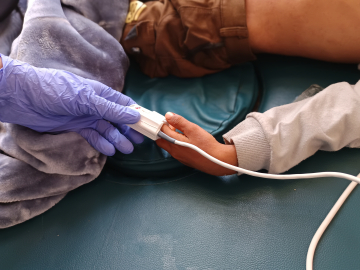Urban Innovation
Urban leaders and innovators from across the US convened in Baltimore yesterday to talk about cities—what works, what doesn’t and what’s next—for CityLab Baltimore, the latest in a series of global gatherings in cities across the world to explore the challenges and successes of urban communities.
Hosted by The Atlantic, Bloomberg Philanthropies and The Aspen Institute, the event featured city leaders from Baltimore, Detroit and New Orleans, public health experts from the Johns Hopkins Bloomberg School of Public Health, and stakeholders from the private sector.
Wide-ranging discussions focused on some of the similar obstacles that cities confront—poverty, addiction, blight, unemployment—and efforts to develop innovative solutions to build and sustain thriving urban centers.
Despite the formidable challenges that cities face, in his remarks to kick off CityLab Baltimore, Michael R. Bloomberg, the 108th Mayor of New York City and founder of Bloomberg Philanthropies, asserted that now is a time of great opportunity for cities to counter the “dysfunction” in Washington.
Case in point: Since the White House announced plans to withdraw from the Paris Climate Agreement, Bloomberg pointed out that more than 2,000 cities, states, universities and businesses have reaffirmed their commitment—through various collaborations—to drive down greenhouse gas emissions, in keeping with the goals of the Agreement.
Last month, Bloomberg and California Governor Jerry Brown launched America’s Pledge, an initiative to compile and quantify the efforts of municipal, state and private entities to reduce emissions levels.
“Cities do what’s in their own best interest,” Bloomberg said. “The same steps taken to reduce carbon emissions also make cities better places to live by improving the air you breathe, the water you drink and the congestion that keeps businesses from being more productive.”
Another pressing public health issue, the opioid epidemic that is ravaging so many American cities and communities, was also on the minds of city leaders. The conversation, which included Baltimore’s and Rhode Island’s top health officials, took place on the same day that President Trump’s opioid commission called on him to declare the epidemic a national emergency.
Baltimore health commissioner Leana Wen’s efforts to manage the crisis prioritized naloxone (Narcan), a drug that can reverse an opioid overdose. She reported that the aggressive outreach and training campaigns in administering the drug have prevented more than 1,000 fatal overdoses in Baltimore in the past 2 years.
In Rhode Island, Nicole Alexander-Scott, director of the state’s Health Department, developed partnerships with 13 hospitals to put in place standard procedures for treating patients for overdose and those at risk of overdose.
“We’re getting people right then and there and are able to start them on medication-assisted treatment and beginning the long-term recovery process,” she explained.
Fighting addiction is a key goal of the the Bloomberg American Health Initiative, launched in 2016 at the Johns Hopkins Bloomberg School of Public Health with a $300 million gift from Bloomberg Philanthropies. Director Josh Sharfstein said that one focus of the Initiative’s addiction-centered community partnerships will address the epidemic’s latest challenge, the growing use of the powerful and dangerous opioid fentanyl.
“We’ll be looking at what’s new that we can bring to the table—things like supervised [drug] consumption areas and testing in the field for fentanyl,” he said. “We’ll be using the research capacity we have to push the envelope.”
Along with more drug treatment and prevention, adequate funding and reduced stigma, Michael Botticelli, former drug czar in the Obama Administration and Distinguished Policy Scholar in the Bloomberg School’s department of Health Policy and Management, proposes another element—at the heart of flourishing cities—that in his mind is equally important in controlling the opioid epidemic.
“The ultimate solution is community,” Botticelli said. “When we have diseases of despair— suicide, drugs, alcoholism—contributing to the decline of life expectancy in the US, we have a problem that’s rooted in people’s isolation, in the lack of community cohesion.”
Join the thousands of subscribers who rely on Global Health NOW summaries and exclusive articles for the latest public health news. Sign up for our free weekday enewsletter, and please share the link with friends and colleagues: http://www.globalhealthnow.org/subscribe.html
Illustration of the Baltimore skyline by mauromod (iStock)





